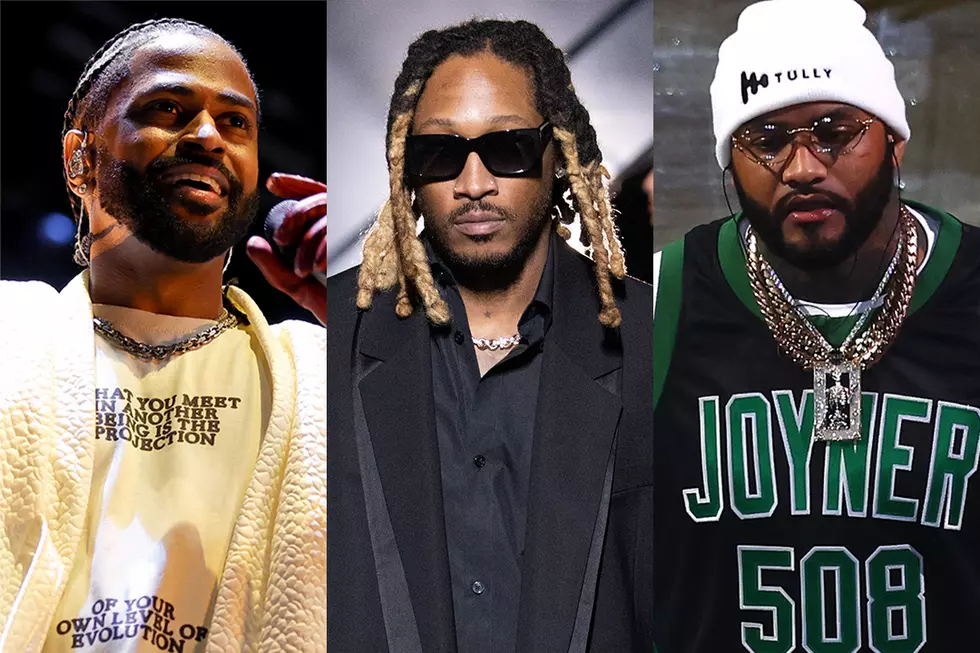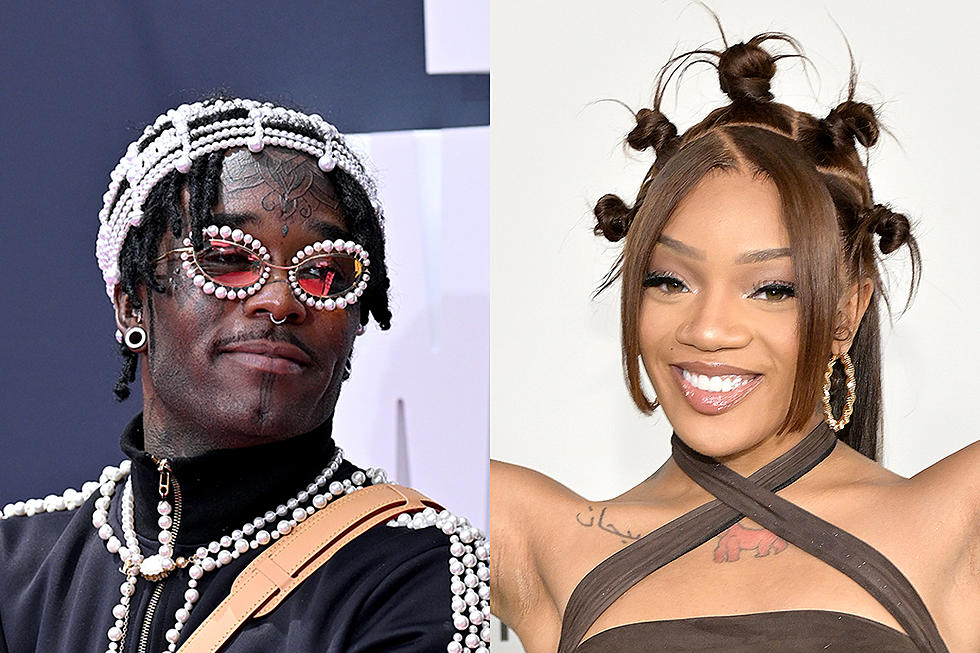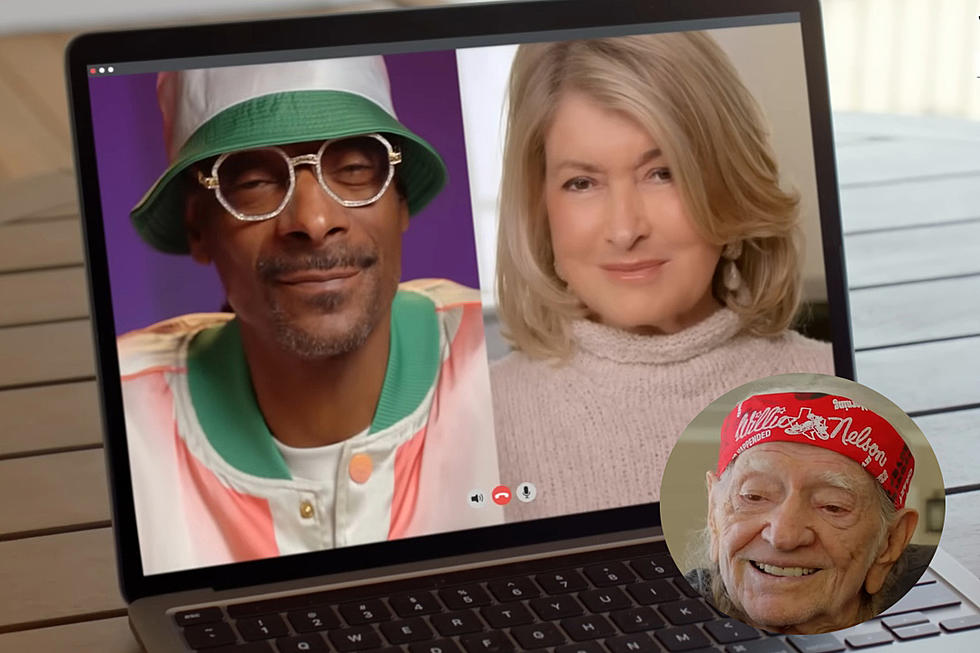
Kids Just Want To Look Cool: My Day With Mac Miller
Throughout my day with Mac Miller, Cameron Crowe's Almost Famous—for better or worse, the movie that makes anyone want to become a music writer—comes up in conversation a lot, especially the last scene. In the scene, Russell Hammond, lead singer of Stillwater—a band that main character William Miller is commissioned to write a Rolling Stone cover story on—approaches Miller cautiously and alone, and says the famous line, "Just make us look cool, man." It's heartbreaking, because by this point the main character has seen so much of the band and who they are as individuals, and more importantly, who they aren't, and Hammond pleads with him to ignore the rest and just make them look cool. Mac jokes that most journalists (including past writers at XXL) often miss the mark when writing a story about him, picking quotes and placing them in convenient places to tell an incomplete story, but all he really wants is to look cool. It's not that he feels misunderstood in the artsy "You'll never understand me" way; he just feels uncomfortable about always being labeled as something. So, I ask him, if he had the chance to write his own feature story about himself, what would it be about? He thinks about this throughout the day.
It's a quarter to 5, and Mac Miller and I are idling in a holding area in the underbelly of New York's Beacon Theatre, waiting for his chauffeur to pull up and take us back to Mac's hotel in the Meatpacking District. He just finished getting onstage at an event called MTV Up Front, during which the stars of various MTV shows like Catfish, Teen Wolf and The Show With Vinny awkwardly present their shows to potential ad buyers. The whole thing feels like some old-world ritualistic event where aging farmers offer their fertile daughters to willing suitors.
Mac is here because his (actually hilarious) MTV2 show, Mac Miller And The Most Dope Family, has recently been renewed for a second season, which is exciting news, but Mac's exhausted. Earlier, Mac was backstage, anxiously pacing around a room filled with "talent" and MTV execs for close to an hour, memorizing his three or four lines. A member of Mac's management team, Artie Pitt—who's also the VP of Rostrum Records, the boutique label that first signed Mac—and friend Q (Quentin Chandler, co-head of Mac's Most Dope brand) tried in vain to calm him down, but he finally looked over at me and explained, "My brain is just in crisis mode right now." The reason being that he spent the past four days without sleep in a last-ditch effort to finalize his sophomore LP, Watching Movies With The Sound Off. The work paid off, and he's turned the album in to be mixed and mastered, but dude is on-edge.
When Artie tried to tell Mac his nerves were all in his head, Mac jokingly lashed out, "You can't tell me how I feel! Why are you telling me it's all in my head? Everything is in my head." The MTV starlets looked uneasy, huddled in a corner of the room, looking down so as to not be involved in the argument, even if it wasn't real. When Mac mentioned that he was making the girls uncomfortable because they don't know who he is, Artie looked over at them and dropped the incredible famous rapper line: "Do you know who he is?" In a mix of laughter and exhalation, the mood lightened, but Mac still feels really out of place at events like this, admitting, "The reason I don't like to do this stuff is because I don't really get what it's all about." But, he knows that as an independent rapper with a major TV show, there are certain things he has to do.
Back in Beacon Theatre's underbelly, we're still waiting for the chauffeur when we suddenly hear chants and screams as an oversized, blacked-out Mercedes van pulls up to the venue. When its doors open, the entire Upper West Side block we're standing on is engulfed in a cloud of weed smoke, giving everyone from security guards to the tween girls yelling for attention a contact high. It's Snoop Lion. As he exits the van, he glides—literally, he doesn't walk, he glides—through the handlers and moves toward Mac. The two shake hands and catch up, getting along like old friends, which is really strange to watch considering their 20-year age difference. They must be kindred spirits.
Snoop is apparently a surprise guest at Up Front and mentions to Mac that he'd love to be on Most Dope Family's second season, which starts shooting in L.A. in August. Snoop then asks Mac what he's up to tonight, to which Mac ashamedly responds, "I think I might just rest. And I'm never that dude, but…" You can tell he's tired, but you can also tell by the way he lets his voice trail off that he might get into some fun tonight. Snoop persists and tells him that he's headed to The Box—an exclusive burlesque/performance art space in the Lower East Side—later, around 2 in the morning. While Mac's never been, Snoop tells him it's one of his favorite attractions in New York City and that he's been six or seven times. He explains, "There's some nice pieces in there, but there's some weird shit in there, too. It's more weird than anything, but we the type of motherfuckers that like that shit. The homies may trip, but you definitely gotta go look at it." Mac, still unsure, asks, "Is the shit that goes down in there…illegal?" Snoop knowingly laughs, then says, "You can do anything. It's like a porno movie… there's transvestites, hermaphrodites, everything. You just gotta have an open mind." As he starts to walk away, Snoop mentions, "I got that shit, too. That California shit" and winks at us. If Mac was considering heading to The Box before Snoop said that, this definitely wins him over.
And just like that, Snoop glides away and heads back to his van, but not before dapping and taking pictures with the screaming fans waiting to get a glimpse of Mac. When we finally exit, Mac runs by the fans with a barrage of high-fives, like a basketball player running onto his home court as he's introduced, but leaves most of them gasping and yelling for more. As we get into the SUV and drive off, we hear screams like "We love you and you won't even take a picture?!", "Really, Mac?", and "Are you fucking serious?" There are a lot of boos, too. Mac is kind of upset with Snoop for showing him up—"Why'd he have to do that? He fucked it up for everybody!" but Q tries to justify Snoop's friendliness, arguing, "That's why you can't tease 'em! A nigga like Snoop, who's done this shit for years, he knows all you gotta do is hop in the picture real quick and breeze through that shit." Mac's learning, but he's still bitter. "If Snoop wouldn't have done that, to keep it real, I would've been on top." He might be right, but I'm pretty sure it's a hard fact—similar to facts like the Earth is round and JFK was assassinated—that you can't compete with Snoop when it comes to charming fans, even if they're your fans to begin with.
As we patiently sit in traffic and slowly make our way downtown, Hot 97's DJ Enuff tweets about Mac's trippy new video for "SDS," starting his tweet with, "Jewish indie superstar Mac Miller…" Mac carefully tries to piece together a joke about the tweet and eventually wonders, "Like, what if every time they tweeted something they called out someone's race or ethnicity, like, 'Black football player…'" Everyone laughs. "It's so funny, that was the whole thing, like 'The Jewish kid is good at business. What a surprise.'" As he thinks back on the ways that fans have tried to come at him in the past—including a rabid follower who yelled "I'm Jewish, too!"—Mac becomes incredulous with the fact that people, mostly kids (why weren't they in school?), stood outside for so long to spot a celebrity. "Why? Like, who's there that's really that interesting?" Artie quickly responds, "You," but it takes Mac a second to remember that he's a mainstream celebrity now. Looking at him—a 21-year-old red/brown-haired kid with a tiny bit of a beer belly and full sleeve tattoos on both arms (as well as the knuckle tats that read "MOST DOPE" in old English)—it can be easy to forget.
Continue reading...
Earlier in the day, we were also in the back of an SUV (where I'm convinced rappers spend the majority of their time), heading to the hotel for the first time after a walk-through at Beacon, when Mac admitted, "I really need to take a shit." Fittingly, as soon as we got to the hotel room he made his way straight for the bathroom to take said shit, then emerged with the revelatory question, "You ever take a shit and you can't believe that more shit's coming?" to which Mac's bodyguard—a hulking mass of a man named Big Dave—made a face like every shit he takes is that kind of shit, and giggled. The full room erupted in laughter. It's moments like this when you realize that the reason all of these people are here—myself included—and huddled around, making sure that the oiled machine continues to run smoothly and the group gets to where they need to get on time, is all because of a kid who likes to laugh about shit. Now, that's not to say Mac's an immature kid, but he is a kid nonetheless, who has all the more reason to be more immature than anyone else his age because he blew up before graduating from high school and spent two years on the road performing sold-out shows as soon as the summer after graduation hit. He never got a chance to emotionally develop like the majority of college grads do—exploring themselves, their interests, their opinions (they have a lot)—and that means that spending time with him isn't like spending time with other artists. He's not media trained, whatever that means, and he's not so great at filtering his responses and admissions, because he naively gives people (even journalists) the benefit of the doubt not to make him look stupid. Unfortunately, some use this to their advantage, so he does his best to safeguard himself, often shooting me looks or saying things like "there's a writer here" whenever his jokes or comments get into risqué territory.
We return to the hotel after the MTV event, and Mac and I—well, not really just Mac and I, as we're still surrounded by Artie, Q, Big Dave and Mac's PR lady—try to discuss his new album and its contributors. But, since the room is a bit stuffy and the conversation generally feels forced, our superficial chat about music shifts and turns into a therapy session about his emotions. Before long, he's chain-smoking cigarettes and discussing his complexes and his recent transition from sure-fire pop star with a saccharine worldview to an actually interesting musician with diverse influences and enough musical ability to randomly record a jazz standards EP and play all of the instruments on it himself. The project—the debut from Mac's alter ego Larry Lovestein (alongside his fictional backing band, The Velvet Revival)—is titled You, and is fucking beautiful. The five-track EP is a wildly smooth and moody journey through the heart that just feels like walking through Brooklyn in the wintertime. Or maybe I was just listening to the album a lot in the wintertime in Brooklyn and I fused the two together in one romantic memory.
Regardless, the EP came about after a bout of cabin fever hit Mac in the midst of working on his upcoming album, leaving him with the feeling that he just needed to "not rap" for a little bit. Still, the project is a weird departure, something you wouldn't expect from a guy who became an international success off feel-good, easily-digestible songs like "Donald Trump" and "Party On Fifth Ave," but the point he's at now was clearly long in the making. The moment it all changed was marked by the release of his third mixtape, Macadelic, a slowed-down, vibey record filled with sort-of love songs detailing the ebbs and flows of a relationship. He explains, "The project was about the comparison of love and drugs, and how those two are one in the same. I was in a serious relationship at that time, and it takes you on all these serious emotional ups and downs as everyone knows, and I started thinking about how similar that shit was to drugs." Ironically, the majority of the press the tape received was about his actual embrace of drugs like promethazine, which he spoke openly about drinking around the time of its release. When I ask him if he was doing a lot of the drugs at the time, he admits, "Man, I've been doing drugs since I was fucking 15. I mean, nothing's changed…I mean, I discovered lean around that time, but the project wasn't about drugs." Despite any miscommunication about the album and its message, it remains Mac's favorite project that he's put out, and he remembers playing it for his parents. He tells me, "When my mom and dad heard it, they compared it to The Beatles' White Album. I asked them why and they were like, 'The Beatles did "I Wanna Hold Your Hand" to become superstars, then they did the White Album.' Then they were like, 'The only difference with you is that you didn't wait.'" When I ask him about his changed outlook, he thinks carefully and chooses his words slowly. He starts, "I always wanted to be successful, but the type of success I got…" His thought trails off. With some help, he comes to the simple realization, "I didn't want to be a fucking pop star."
The room goes quiet for a little bit after that, and I'm not sure what to ask about next, especially because he now has a look on his face like he's finally said too much. I ask him again about what kind of story he would write about himself, and he struggles to piece together an answer. Finally, I ask him if he wants to go out on the balcony so that we can speak in private, un-judged by the invested people in the room who are silently watching us speak and are possibly afraid of what he'll divulge to me unsupervised. He ignores the question. Suddenly, it's one of those rare moments for a journalist, where I feel like I'm in control of the situation. In this profession, you're typically at the whim of people who don't necessarily need you and act as if you're constantly pestering them—you're chasing PR people and artists, and you're always at their beckoning when they're ready for you. But, here we are in this room, just two dudes dissecting one's psyche, and Mac Miller is stripping down his cool as a pop star just enough to let me play pop psychologist. But just when I feel like we've gotten somewhere, like he's going to continue, Mac admits that he always does this, and Artie comments that a good journalist forces you to divulge too much. But Mac reiterates, "I know, but I always do this." Before we wrap up, Mac still hasn't figured out what kind of story he wants written about him, but he tells me a simple truth that's telling enough: "People try to define me so much, but I'm not that simple. No one is that simple."
As I gather my things, Mac heads out on the balcony, where Q and Big Dave are now facing a blunt. After spending the day (or six hours) with Mac, I'm not sure that I've had any grand realizations about him or about who he's becoming, but I have had the realization that our day together was fun but really nothing more than an awkward dance—both of us figuring out how and when to say the right thing to one another in hopes of somehow benefitting off of one another. I also realize that his life is pretty awesome (like you imagine most professional rapper's lives to be), but at times can feel like a too-long trip that's filled with surreal moments but by its end can leave you empty. Maybe that's why he kept stressing his need to get off the grid and explore the world, another hint that he sometimes just wants to escape whatever Mac Miller has become. I finally step out onto the balcony and Mac is smoking more cigarettes. I tell him I'll be on my way, and he turns to me and either totally-seriously or totally-jokingly says, "just make me look cool." I promise him I'll try.
More From XXL









